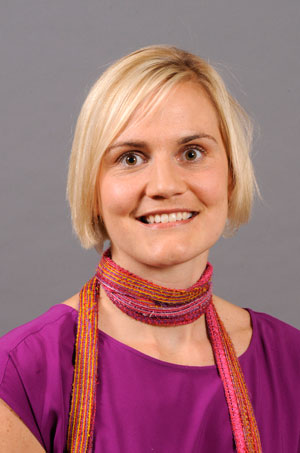Faculty Profile
Claire Seiler
Professor of English (2010)Contact Information
LOA 2025-26
East College
717-245-1921
Bio
Claire Seiler's research and teaching focus on modern and contemporary US, British, and Irish literatures; poetry and poetics; public health humanities and disability studies; and the history of literacy. She is a 2025-26 Fellow at the National Humanities Center, where she is working on a literary history of polio. Seiler is the author of Midcentury Suspension: Literature and Feeling in the Wake of World War II (Columbia University Press, 2020); of essays published in Contemporary Literature, Contemporary Women's Writing, Modernism/modernity, PMLA, Studies in the Novel, Twentieth-Century Literature, and other journals; and of chapters in Elizabeth Bishop and the Literary Archive (2020), The Routledge Companion to Politics and Literature in English (2023), and other volumes. She is also editor of the forthcoming Cambridge Companion to Late Modernism. Seiler's work has been supported by the American Academy of Arts and Sciences, the National Endowment for the Humanities, and the Mellon Foundation. The latter awarded a major institutional grant, Beyond the New Normal: Disability, Literature, and Reimagining Social Justice, that Seiler and Professor Alyssa DeBlasio (Russian) are co-directing through 2025.
Education
- B.A., Middlebury College, 2002
- M.Phil., Trinity College, Dublin, 2004
- Ph.D., Stanford University, 2010
Awards
- Ganoe Award for Inspirational Teaching, 2019
- Dickinson Award for Distinguished Teaching, 2024
2025-2026 Academic Year
Fall 2025
ENGL 101 Feminist Genres
Cross-listed with WGSS 101-03. This course explores the centrality of literature and literacy to feminist thought, politics, imagination, and expression. We will consider how literacy itself has historically fostered feminist ideas and consciousness; explore how and why (mostly) twentieth-century US feminist writers approached and reimagined several literary genres and modes; and experiment genres ourselves, using creative and analytical written work to hone our own voices as writers and our grasp of feminist literary history. You can expect to emerge from this course with a solid grounding in the origins and contestations of feminist literary studies. You can also expect and to find yourself inspired-and challenged-by deep reading experiences of works across genres by Kate Chopin (novel of manners), bell hooks (essay), Dorothy B. Hughes (noir), Audre Lorde (journal), Toni Morrison (coming-of-age novel), and Virginia Woolf (essay), among others.
WGSS 101 Feminist Genres
Cross-listed with ENGL 101-03. This course explores the centrality of literature and literacy to feminist thought, politics, imagination, and expression. We will consider how literacy itself has historically fostered feminist ideas and consciousness; explore how and why (mostly) twentieth-century US feminist writers approached and reimagined several literary genres and modes; and experiment genres ourselves, using creative and analytical written work to hone our own voices as writers and our grasp of feminist literary history. You can expect to emerge from this course with a solid grounding in the origins and contestations of feminist literary studies. You can also expect and to find yourself inspired-and challenged-by deep reading experiences of works across genres by Kate Chopin (novel of manners), bell hooks (essay), Dorothy B. Hughes (noir), Audre Lorde (journal), Toni Morrison (coming-of-age novel), and Virginia Woolf (essay), among others.
ENGL 321 Celtic Revival/Harlem Renaiss
This course studies two major art movements of the modernist period, both of which tie formal innovation to questions of national citizenship, racial equality, and political autonomy. How did these "minor" literatures challenge majority national or imperial cultures? What events and forms galvanized the social and aesthetic work of the Celtic Revival (Ireland) and the Harlem Renaissance (US)? Primary readings cover several genres (fiction, drama, poetry, and essays); primary authors include, among others: Langston Hughes, James Joyce, Nella Larsen, Alain Locke, J.M. Synge, Jean Toomer, and W.B. Yeats.
